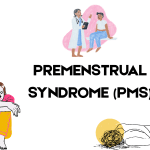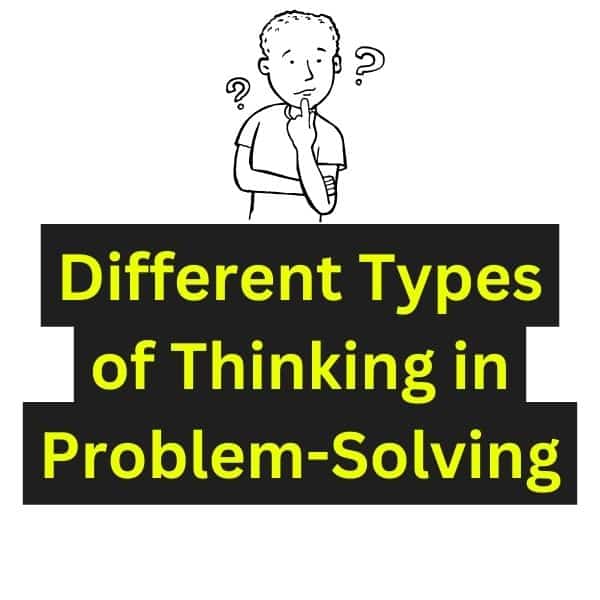Types of Thinking
There are several different types of thinking that humans use to process information and make decisions. Here are some examples:
1. Analytical thinking:
This type of thinking involves breaking down complex information into smaller parts and analyzing each one in detail to draw conclusions.
Eg:- Solving a complex mathematical problem by breaking it down into smaller steps and analyzing each one.
(Click Here to Know More About the Pros and Cons of Ashwagandha)
2. Creative thinking:
Creative thinking involves generating new ideas and solutions to problems. It often involves thinking outside of the box and coming up with innovative approaches.
Eg:- Coming up with a new invention or a fresh approach to a problem that no one has thought of before.
3. Critical thinking:
Critical thinking involves evaluating information and arguments to determine their validity and usefulness. It involves questioning assumptions and using evidence to support or reject claims.
Eg:- Evaluating the evidence for and against a political candidate before deciding who to vote for.
4. Reflective thinking:
Reflective thinking involves examining one’s own thoughts, beliefs, and experiences in order to gain new insights and perspectives.
Eg:- Analyzing a past experience or decision to gain insights and learn from it.
5. Intuitive thinking:
Intuitive thinking involves relying on gut feelings and instincts to make decisions. It often involves making quick judgments based on incomplete information.
Following your gut feeling to make a decision about a situation that you don’t have all the information for.
6. Divergent thinking:
Divergent thinking involves generating a wide range of possible solutions or ideas to a problem. It often involves brainstorming and considering many different perspectives.
Eg:- Brainstorm as many possible solutions to a problem as you can without worrying about whether they are practical or realistic.
7. Convergent thinking:
Convergent thinking involves narrowing down a set of possible solutions to a problem to find the best one. It often involves evaluating each option and choosing the most practical or effective solution.
Eg:- Evaluating several options for a new project and choosing the one that is most feasible given your budget and resources.
8. Systems thinking:
Systems thinking involves considering how different parts of a system interact with each other and how changes in one part can affect the entire system. It often involves looking at the big picture and considering the long-term implications of decisions.
Eg:- Considering how changing one aspect of a complex system, such as a city’s transportation network, could affect other aspects of the system, like the local economy or the environment.
(Read More About 7 Stages of Lewy Body Dementia)
9. Introverted Thinking
Introverted thinking is a cognitive process characterized by deep, internal focus and a preference for working through problems independently. It involves analyzing information internally and seeking to understand underlying principles and structures. People with introverted thinking often work alone and are associated with logical and analytical thinking, questioning assumptions, and challenging conventional wisdom.
Eg:- An example of introverted thinking is a scientist working alone in a laboratory, analyzing data and developing new theories based on their observations. They may spend long hours poring over complex data sets and researching existing theories, seeking to understand the underlying principles that govern the natural world.
How to Improve Thinking Skills
There are various ways to improve your thinking skills. Here are some suggestions:
- Practice regularly: Like any other skill, thinking skills can be improved with regular practice. Set aside some time each day to engage in activities that challenge your thinking skills.
- Read widely: Reading exposes you to new ideas and perspectives, which can help improve your critical thinking skills. Read a variety of materials, including books, articles, and essays.
- Take on new challenges: Challenge yourself to learn new things and take on tasks that are outside of your comfort zone. This can help improve your problem-solving skills and foster creativity.
- Engage in debates: Engage in discussions and debates with others to practice your critical thinking and communication skills. Listen to different perspectives and challenge your own assumptions.
- Use logic puzzles: Logic puzzles, such as Sudoku or crosswords, can help improve your analytical thinking skills. These puzzles require you to think logically and critically to solve problems.
- Practice mindfulness: Mindfulness can help improve your reflective thinking skills by allowing you to focus on your thoughts and experiences. Engage in mindfulness practices, such as meditation, to improve your ability to reflect on your thoughts and experiences.
- Collaborate with others: Working with others can help improve your systems thinking skills by allowing you to see how different parts of a system interact with each other. Collaborate with others on projects or brainstorming sessions to improve your systems thinking skills.
- Take breaks: Taking breaks from thinking-intensive tasks can help improve your creativity and prevent burnout. Allow yourself time to rest and recharge to keep your thinking skills sharp.
Factors Influencing the Thinking Process
The thinking process can be influenced by various factors, including:
- Education and knowledge: Education and knowledge can influence the way we think by providing us with a framework for understanding the world. The more we learn, the more we are able to think critically and creatively.
- Culture and upbringing: Our cultural background and upbringing can also influence our thinking process. Our beliefs, values, and norms can shape the way we perceive and interpret the world around us.
- Emotions and mood: Our emotions and mood can also influence our thinking process. For example, when we are feeling anxious or stressed, our thinking may be clouded or distorted.
- Personal biases and assumptions: We all have personal biases and assumptions that can influence the way we think. Being aware of our biases and challenging them can help us think more objectively.
- Social and environmental factors: Social and environmental factors, such as peer pressure or the physical environment, can also influence our thinking. For example, being in a noisy or distracting environment can make it harder to think clearly.
- Age and experience: Our thinking process can change as we age and gain more experience. As we get older, we may become more reflective and open to new ideas.
- Genetics and biology: Our genetics and biology can also influence the way we think. For example, some people may be more predisposed to creative thinking or analytical thinking based on their genetic makeup.
Disorders of the Thinking Process
- Schizophrenia: A severe mental disorder characterized by disordered thinking, perception, and behavior. People with schizophrenia may experience delusions, hallucinations, and disorganized speech, which can significantly impact their ability to think clearly.
- Delusional disorder: A type of psychotic disorder characterized by fixed, false beliefs that are not based on reality. These beliefs can significantly impact a person’s ability to think clearly and interact with others.
- Autism spectrum disorder: A neurodevelopmental disorder characterized by difficulties with social communication and interaction, as well as repetitive behaviors and interests. These difficulties can affect a person’s ability to think and learn in a typical way.
- Dementia: A group of disorders characterized by a decline in cognitive function, including memory loss, impaired reasoning, and difficulty with language. Dementia can significantly impact a person’s ability to think clearly and perform daily activities.
- Traumatic brain injury: A brain injury caused by a blow to the head or other trauma, which can lead to difficulties with thinking, memory, and other cognitive functions.
FAQs
Q: What is analytical thinking?
A: Analytical thinking is a type of thinking that involves breaking down complex information into smaller parts and analyzing each one in detail to draw conclusions.
Q: What is creative thinking?
A: Creative thinking is a type of thinking that involves generating new ideas and solutions to problems. It often involves thinking outside of the box and coming up with innovative approaches.
Q: What is critical thinking?
A: Critical thinking is a type of thinking that involves evaluating information and arguments to determine their validity and usefulness. It involves questioning assumptions and using evidence to support or reject claims.
Q: What is reflective thinking?
A: Reflective thinking is a type of thinking that involves examining one’s own thoughts, beliefs, and experiences in order to gain new insights and perspectives.
Q: What is intuitive thinking?
A: Intuitive thinking is a type of thinking that involves relying on gut feelings and instincts to make decisions. It often involves making quick judgments based on incomplete information.
Q: What is divergent thinking?
A: Divergent thinking is a type of thinking that involves generating a wide range of possible solutions or ideas to a problem. It often involves brainstorming and considering many different perspectives.
Q: What is convergent thinking?
A: Convergent thinking is a type of thinking that involves narrowing down a set of possible solutions to a problem to find the best one. It often involves evaluating each option and choosing the most practical or effective solution.
Q: What are systems thinking?
A: Systems thinking is a type of thinking that involves considering how different parts of a system interact with each other and how changes in one part can affect the entire system. It often involves looking at the big picture and considering the long-term implications of decisions.
Q: How can I improve my analytical thinking skills?
A: To improve your analytical thinking skills, you can practice breaking down complex problems into smaller parts and analyzing each one individually. You can also practice looking for patterns and connections between different pieces of information.
Q: How can I improve my creative thinking skills?
A: To improve your creative thinking skills, you can practice brainstorming and generating new ideas. You can also try looking at problems from different perspectives or experimenting with new approaches.
Q: How can I improve my critical thinking skills?
A: To improve your critical thinking skills, you can practice questioning assumptions and evaluating evidence. You can also practice analyzing arguments and considering alternative viewpoints.
Q: How can I improve my divergent thinking skills?
A: To improve your divergent thinking skills, you can practice brainstorming and generating a wide range of possible solutions or ideas. You can also practice looking for connections between seemingly unrelated concepts.
Q: How can I improve my convergent thinking skills?
A: To improve your convergent thinking skills, you can practice evaluating different options and choosing the most practical or effective solution. You can also practice analyzing data and weighing the pros and cons of each option.
Q: How can I improve my systems thinking skills?
A: To improve your systems thinking skills, you can practice looking at the big picture and considering how different parts of a system interact with each other. You can also practice thinking about the long-term implications of decisions and considering the potential ripple effects on other parts of the system.
Latest Posts
- Premenstrual Syndrome (PMS) Explained: Powerful Relief Strategies for 2026

- Magnetic Seizure Therapy (MST): A Breakthrough in Psychiatric Treatment in 2025

- AIIMS New Delhi, NIMHANS Bengaluru, JIPMER Puducherry: No Leaves for Healthcare Workers Amid Tensions

- Narcissistic Personality Disorder in 2025: Unveiling the Hidden Struggles and Empowering Recovery

- Conquering Rubral Tremor: Unveiling Effective Treatments in 2025

